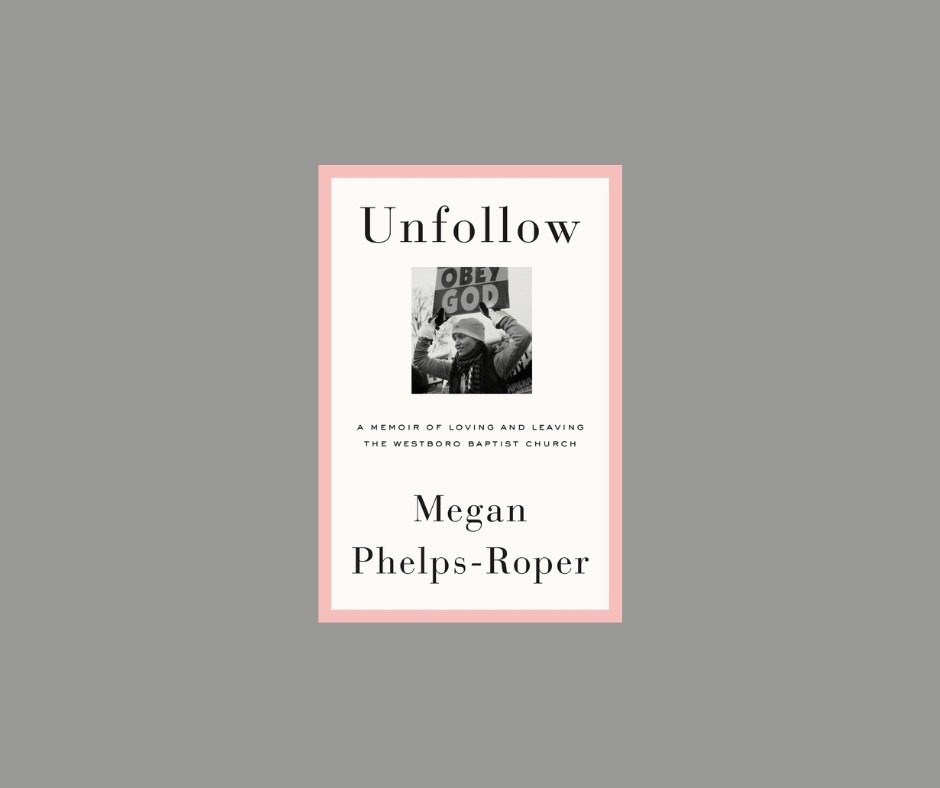Megan Phelps-Roper’s “Unfollow”, a story of reckoning
Megan Phelps-Roper was only 5 when she started attending daily after-school picketing protests with her family. Before she could read, she became a strong supporter of the radical and infamous views upheld by what Louis Theroux dubbed “the most hated family in America”, the Westboro Baptist Church. You might’ve seen them on the news in the mid-2010s, but if not, you’ve certainly heard their notorious religious parodies of international pop hits. Aged 26, after a lifetime spent as her grandfather’s “right-hand ally”, she later decided to leave those views, the church, her family and her former life behind.
Westboro Baptist Church is an American fundamentalist group widely known and condemned for their radical protests and public appearances, mostly targeting vulnerable communities such as the LGBTQ+ community, people with AIDS, war veterans, and celebrating events like 9/11. They garnered widespread media attention for their homophobic slogans and picketing war veterans’ funerals. In Unfollow: A Journey From Hatred to Hope, Phelps-Roper recounts her experience of being born into the family leading the church and her subsequent dissent in 2012, at age 26.
The author examines her childhood surgically, relating chilling experiences that stir a range of emotions, from confusion to pure helpless outrage in the reader. As a child, she witnessed her mother physically abusing her sister during a fight: “She […] digs long fingernails into her flesh. I know it hurts, because she does it to me when I misbehave”. Hauntingly, she outlines, “Until fear of God replaced fear of pain, this was how you learned obedience”. Earlier, we learned that her mother faced abusive treatment from her father.
Tellingly, an uncle said “Go ahead and write some books and whatnot”, which I personally saw a chilling irony in.
Dissenting meant not only dissenting from the views of the church, but from the family as a whole. Her uncle, Nathan, left the church and came forward with accusations of aggressive behaviour from his father. Interviewed by a reporter, his siblings peddle claims of falsehood and false outrage at his story, “pretending they had no idea what Nathan was referring to”, and that he “always had an overactive imagination”. Tellingly, an uncle said “Go ahead and write some books and whatnot”, which I personally saw a chilling irony in. Essentially, this is when Phelps-Roper began to notice there was something not quite right about the church’s alleged loyalty to the truth.
Many years down the line, the author slowly comes to the realization that the endeavours she made such a monumental effort to uphold were not quite morally right. She becomes the spokesperson for the church, and when posting on the church’s Twitter account, her beliefs are challenged by people engaging in open, judgment-free debate. Surprisingly so, it is through this that she meets her future husband. She goes on to have what one would nowadays call a “spiritual awakening”, discovering that she was indoctrinated, and dramatically leaving the church accompanied by her younger sister, Grace.
Her story is one of reckoning, and the reader is left perhaps baffled at her initial ignorance, albeit explained by her upbringing). I felt satisfaction at her subsequent departure from the church and the fundamentalist views she so intensely supported. It felt like the ending of your run-of-the-mill superhero story. Overall, I am glad she found the ability and strength to leave behind a lifetime of harmful actions. She could’ve ended her memoir there. Unfortunately, she goes on to make a point I would rather have not read.
She ends the book by making the argument that, since her interactions on social media helped her change her views, we should encourage unrestricted speech on such platforms, as the opposite creates “authoritarian abuse, the creation of echo chambers, and the marginalization of ideas that are true but unpopular”. She condemns the assumption that “refusing to grant mainstream platforms to hated ideas will halt their speed”, which I vehemently disagree with. I think her privilege to learn from people who willingly challenged her views on Twitter is at most a privilege (stemming from her higher education and intellectual abilities), and at least (maybe involuntary) ignorance of the sheer magnitude of people her words as a fundamentalist spokesperson managed to influence in the wrong direction.
Are we meant to believe everyone spouting hatred online is willing to debate? I think not.
I am not advocating in any way for online censorship of “unpopular” views, but I think she should account for vulnerable groups online that can either be hurt or be influenced by such machinations. She might’ve been enlightened by people challenging her homophobic beliefs online, and she’s right to be thankful for that. However, she doesn’t account for the people she likely influenced into adhering to those views. And, again, I think by being open to discourse she represents an outlier: after all, most of her family is still part of the church. Are we meant to believe everyone spouting hatred online is willing to debate? I think not. In terms of harm reduction, we might be better off moderating this kind of content.
Overall, this is an insightful read offering a glimpse into an eerie upbringing in an internationally condemned group. I recommend this to anyone looking to understand the inner workings of this infamous church and the meticulous process of breaking away from a life lived in it. While it remains unclear where the author’s religious beliefs lie now, the reader can only hope they aren’t aligned with anything resembling her past.
4/5 stars

Comments